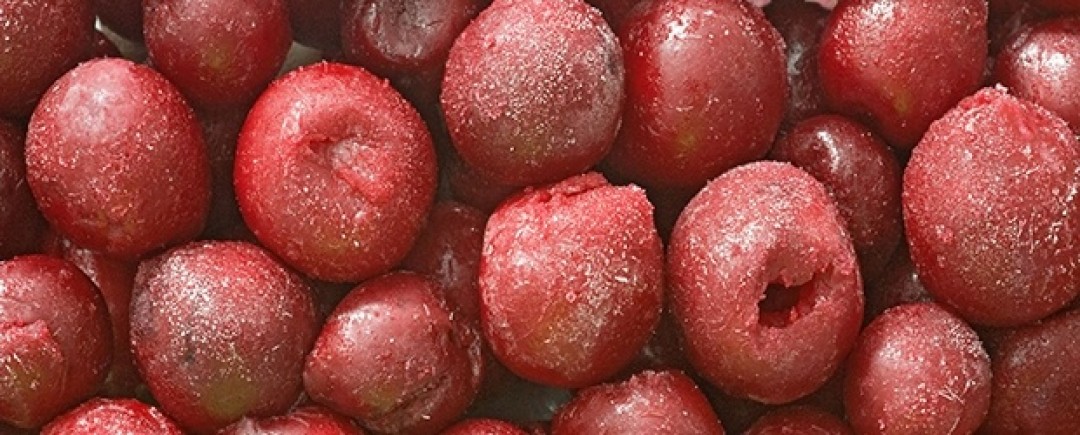
IQF CHERRIES – HIGH DEMAND AND EVEN HIGHER POTENTIAL
2017 has been a year characterized by adverse climatic conditions all around the world, destroying crops and affecting the supply of fruits and vegetables in many regions of the world. Cherry growers is one of the affected agriculture groups, having experienced major losses under the frosty conditions in Europe this spring. Slovenia, Czech Republic, Croatia, Poland, Austria, Germany, Belgium, Bulgaria, the Netherlands, Switzerland and France are just some of the countries affected by bad weather and losing significant volumes of cherry crops. These climatic changes have unbalanced the cherry supply market both in Europe and in USA. Traders and wholesale buyers have been desperately trying to cover their supply needs from all possible origins.
Cherries are a high value product and that's a fact. The increasing demand from dairy and confectionary industries is fueling the demand of IQF cherries as well. When it comes to freezing IQF cherries, a few important aspects have to be kept in mind.
Freezing whole cherries
Typically, cherries have a short harvest season, therefore the processors need to hurry with the processing and take the maximum they can take from the harvest. This means that many times cherry processors freeze the cherries whole, but after the season is over these are defrosted, pitted and IQF frozen.
Pitting can be tricky
When pitting cherries, these can lose both juice, meat and shape. The OctoFrost™ customers have reported that the optimal temperature of the product is the key factor. Pre-cooling the cherries right before pitting to a +2C will lead to the best pitting process: if the temperature is above +2C the fruit is losing juice and if it is below +2C the fruit is losing meat as it breaks down.
Right infeed temperature is crucial
Cherries are a juicy and high-BRIX product, therefore a right infeed temperature is yet again needed to preserve a good appearance and shape of the fruit while keeping a high yield. If the infeed temperature is kept low enough, the cherries are not losing juice and fruit meat during freezing process.
Dark cherries will need those extra minus degrees
The dark sweet cherries are characterized by a very high Brix which means that during IQF freezing, the juice, which is more like a syrup, doesn’t freeze at the typical -18C to -20C but needs to go a few extra degrees lower to -25C for a throughout freezing result. This can lead to a lower capacity but ensures a premium IQF cherry.
OctoFrost will keep the juice in your IQF cherries
As it is similar with freezing IQF tropical fruits, OctoFrost™ is a leading choice by processors due to the efficient and gentle fluidization it can achieve with its adjustable airflow in each freezing zone. This leads to good separation and natural final appearance of the IQF cherries, and totally avoids the unnecessary loss of juice (which of course translated in loss of product to be sold). For a better visualization of how OctoFrost is getting top results with IQF cherries, click on this link for a short video from one of the OctoFrost’s customers:
With the continuous and growing demand of IQF cherries across the world, the business opportunities in this segment are tremendous. As always, the OctoFrost team is always open and dedicated to support with knowledge and more info all the interested cherry processors
